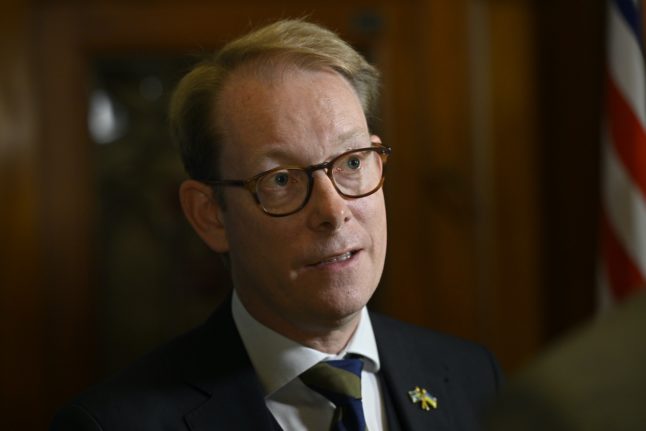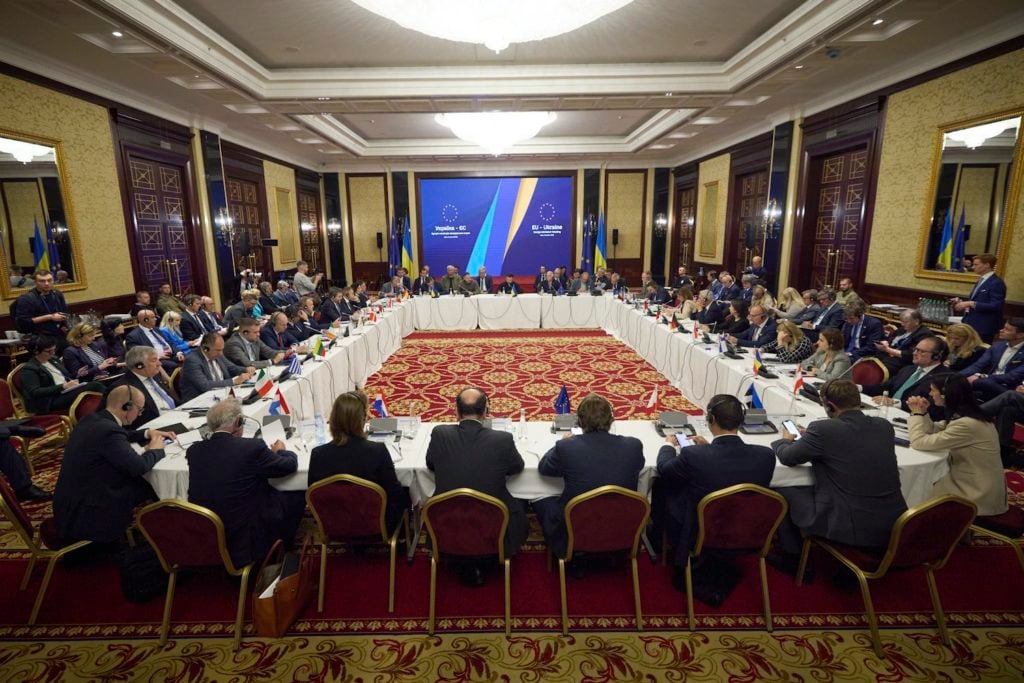Officials on the border would not let Billström across, diplomatic sources told Austrian newspaper Die Presse, who were first to report the administrative hiccup, which left Billström unable to board the eight-hour train headed for Kyiv along with his foreign counterparts.
Billström’s press secretary Anna Erhardt would not confirm why the minister, who was not present in any photos or videos from the meeting, did not attend.
“There was a logistical obstacle,” she told Swedish newspaper Dagens Nyheter. “Other than that, we do not comment on details of ministerial trips.”
Sweden was instead represented by the country’s ambassador to Ukraine, Martin Åberg.
Billström does not appear to have missed much at the summit, which was an informal meeting to show solidarity with Ukraine, Die Presse reports. The meeting was held in a bomb shelter in the basement of a luxury hotel.
He was not the only foreign minister who didn’t turn up: Hungarian foreign minister Péter Szijjártó, recipient of the Russian Order of Friendship, declined the invitation, while Latvian foreign minister Krišjanis Karinš and Polish foreign minister Zbigniew Rau both had to pull out after catching Covid-19.





 Please whitelist us to continue reading.
Please whitelist us to continue reading.
Member comments